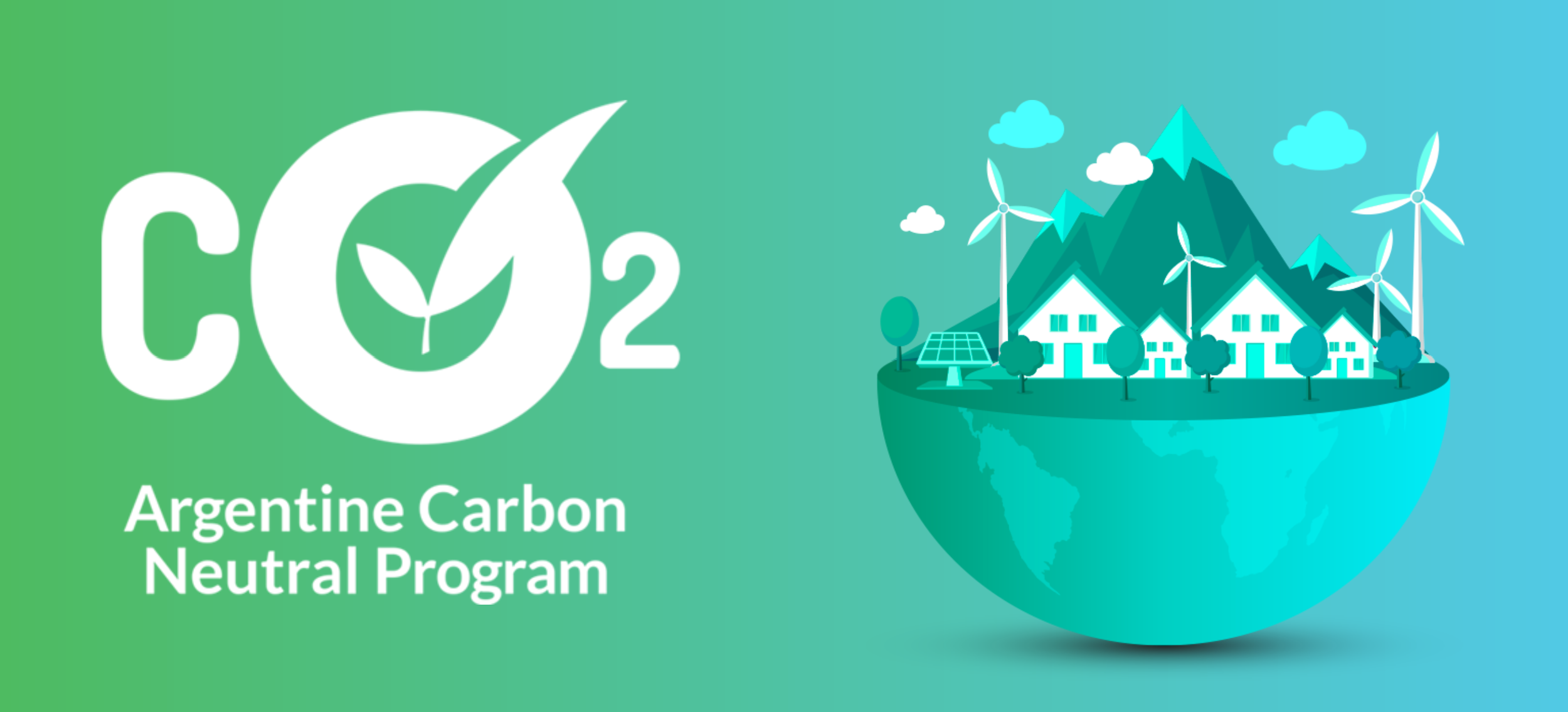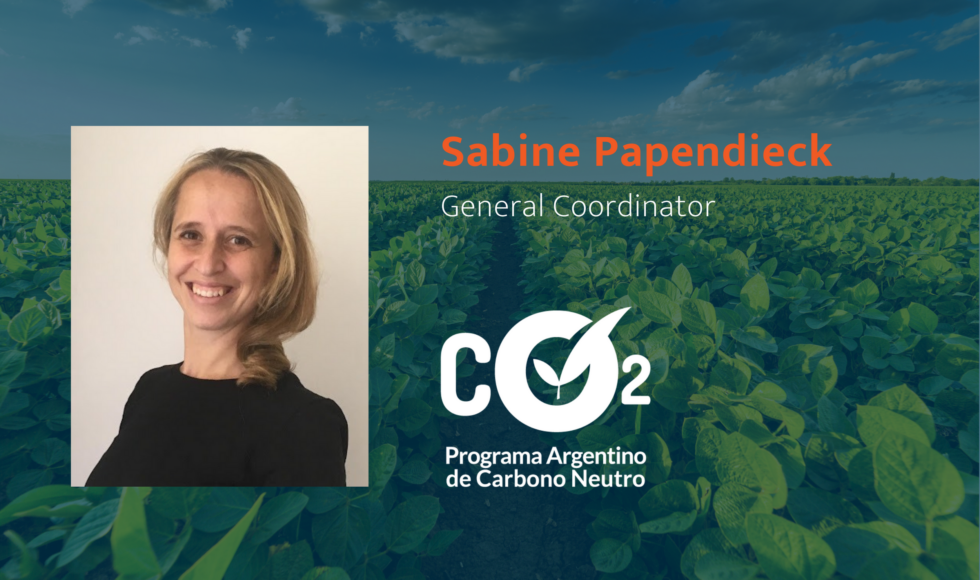The Programa Argentino de Carbono Neutro (PACN), chaired by Sabine Papendieck, is an ambitious initiative with the goal of transforming Argentine agriculture into a world-leading sustainability powerhouse.
In the race to net-zero, deforestation and carbon emissions are becoming as much about the importers as they are the producers.
By establishing industry roundtables, organizing summits, and preparing sustainable best practice and carbon footprint calculation manuals, the PACN wants to enable Argentinian producers to stay ahead of the curve and meet the growing sustainability demands attached to commodity trading.
The project is steaming ahead with industry heavy-hitters from the Corn and Sorghum, Oilseeds and Wheat industries already on board.
We sat down with Ms Papendieck to talk about the PACN’s role in opening up the global market for Argentine businesses by building a national sustainability brand.
A License to Produce
A triple threat of diplomatic, economic and environmental pressures has turned the global gaze on LATAM producers.
For Ms Papendieck, the idea to establish the PACN therefore sprang from a “need to demonstrate based on science that Argentina’s agrifood production is sustainable and to accompany this good management with an objective communication scheme.”
Much of the impetus for the establishment of PACN is due to growing concerns from developed countries, West and East, about the sustainability of a product’s origins.
“Environmental regulation worldwide is gaining speed every day, which is why migration to a sustainable production paradigm will be a condition of sale, market access, and a license to produce in the near future.”
Local producers are increasingly being asked to think globally by distant markets whose sustainability driven investment and purchasing decisions are progressively more scrupulous.
In the search for a sustainable portfolio, investors are looking beyond geographical boundaries to include the environmental cost of a product’s supply chain as well. However, calculating the emissions and defining the sustainability of commodity supply chains is a complex task. Beyond the worldwide valid calculation methodologies, it is necessary to carry out local life cycle analyses and generate local values to achieve the perfect result.
With greenwashing rife, scientific data is a must to back up ESG claims for investors, in particular with mounting due diligence requirements being placed on boardrooms. The PACN’s standardized manuals are a lifeline for producers looking to show off their green credentials.
The EU’s deforestation-free supply chain law is part of a broad redefinition of what it means to label a product as sustainable.
The law intends to bring about “deforestation-free supply chains” for products sold on the European market. However, the scope for the PACN goes beyond the EU and Mercosur, with the lofty goal of securing access to global markets for Argentinian producers. Adapting to these changes in the conditions for participation in the global market is essential to their survival.

The Seal System
The PACN’s Sectorial Roundtables are composed of associations, suppliers and sectoral experts who work together to create best practice manuals for Argentinian companies. All of them are members of the PACN ecosystem. The implementation of the manuals and the calculation certification qualifies companies for a seal that demonstrates the carbon balance or neutrality of the product. The system is innovative and unique in the region.
The challenge is to ensure suppliers have ready access to reliable data that shows off the implementation of the calculation of the carbon balance of the product, the best practices they adopt, and to show a clear roadmap towards future improvements.
Ms Papendieck believes these seals will allow Argentinian products to “differentiate themselves in the market” and be armed with data that will allow them to thrive.
Local Challenges
The PACN are sensitive to the strain that local producers feel when global pressures clash with their day to day practices. Sabine is aware that the local producers will require the “necessary financial cooperation” to make sustainable practices viable. She also understands that this tension will fade when the “positive externalities that are generated through efficient environmental management” begin to surface.
There will be growing pains, but sustainable practices are as good for business as they are for the environment and participation in the global market is its own reward.
On the other hand, the size and diversity of Argentina’s agrifood industry makes it difficult for companies to synchronize their standards of practice.
As Sabine explains, “There are many companies in Argentina that individually are implementing environmental improvement actions but we needed to create an initiative that allows us to work together. Without a chain approach, it is impossible to efficiently calculate and manage the carbon of an export product.”
Innovation
The PACN’s ultimate goal is to provide the Argentine commodity industry with greater opportunities to participate in an ever changing marketplace.
However, on the path to net-zero, the problem of measuring the emissions and sustainable practices of diverse commodity markets with complex supply chains remains a tricky one.
New services that utilize innovative technologies like satellite-monitoring are helping businesses manage environmental risks in their supply chains.
As Sabine advises, “It is important to take into account the immensity of the productive regions in Argentina”. The deployment of satellite monitoring services enable producers to monitor vast swathes of land in real-time, where it would be near impossible to perform accurate, cost-effective audits otherwise.
The technology can monitor carbon levels across large areas of land, but also alert for fires, deforestation, and other environmental risks.
Niels Wielaard, CEO of Satelligence, had this to say:
“Commodity traders are shouldering the burden of the global sustainability drive and the tech they need to relieve the pressure is out there. Satellite monitoring is uniquely positioned to show the world what people in the region are doing to tackle the climate crisis.”
In recognition of the unique challenges posed to those who operate in the region and need to internalize the requirements of the world’s markets, the message is one of global cooperation.
To learn more about how technology can help power sustainability, Satelligence and partners have organized a webinar in Spanish on 25th April, 2022 for the Argentine commodity sectors. Speakers include Satelligence, Rabobank, Solidaridad, Bunge, Control Union and Sabine Papendieck, Director of Argentina’s Carbon Neutral Program.
